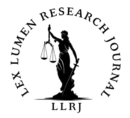Written By Vikrant Gupta,
National University of Study and Research in Law
January 2025
INTRODUCTION
In democratic societies, creating a balance between liberty and security is an everlasting challenge. A diverse country like India also suffers from this problem, the country always tries to balance these two but sometimes it is successful and sometimes unsuccessful. The tension between liberty and security in India is a difficult situation while keeping an eye on the security of the country. People’s liberty and freedom should not be harmed during this. This blog delves into problems that lead to an imbalance between these two, judicial and legislation frameworks that have taken place.
CONSTITUTION FRAMEWORKS PROTECTING LIBERTY
The constitution of India consists of many important provisions which help in protecting the liberty of people and dignity of the people. There are provisions in the constitution like Article 13, the article remove all the laws that were made before the commencement of our constitution and also makes sure that if any law that will be made by the State and that law abridges the rights of the people, that law shall be declared void. This provision does not let the State create any law that violates the fundamental rights of the citizens and protects the liberty of the citizens. The fundamental right to freedom is protected under Articles (19-21), Article 19, the article protects the liberty of the people by giving all citizens the freedom to move from one place to another, giving them freedom of expression and speech, to reside and settle in any part of the country and to practice any profession or trade. The article also gives certain power to the State to put some restriction on people’s rights but that restriction should not be arbitrary but shall only be reasonable in nature. Article 20, this article protects the citizens from double jeopardy, self-incrimination and retrospective punishment. The article clearly mentions that no person shall be imposed with more than the suitable punishment for the offence committed and a person cannot be punished for the same offence twice. Article 21, This article provides protection of life and protects the liberty of the citizens. This article makes it clear that no person can be deprived of his/her life or personal liberty until and only those restrictions are reasonable and are established by proper procedure of law. This article is the heart of protecting the liberty of the people as it ensures certain safeguards against arbitrary deprivation of personal life and liberty.
LEGISLATION’S ON NATIONAL SECURITY
Protecting national security is very difficult the country tries to fulfil this task by using the legislation that was formed to protect its citizens from any attack in present or in future. These are the legislations that help in keeping peace in the country.
National Security Act, 1980
The NSA is a preventive detention law that was implemented in 1980 to maintain public order and help protect national security. The basic meaning of preventive detention is that it helps in stopping a person from committing crimes in future. Article 22(3)(b) clearly mentions that it gives power to the State to allow preventive detention and reasonable restriction can be implemented on personal liberty for the reason of state security and maintaining public order.
Unlawful Activities (Prevention) Act, 1967
The UAPA was implemented to prevent unlawful and anti-terrorism activities in the country. The act mentions under which feature the government can recognize an organization as a terrorist organization, if an organization participates in or promotes terrorism and is involved in terrorist activities the govt can declare that organization as a terrorist organization. The bill also gives power to the central govt to designate individuals as terrorists. This act helps in identifying anti-elements of the country from early on and prevents them from causing any harm to the country. This act does not only apply to Indians but also foreign nationals.
Armed Forces (Special Forces) Act, 1958
This act gives special powers to the Indian armed forces to maintain public order in the disturbed areas of the country. The area can only be designated as disturbed only if it’s declared by the central govt, the state governor or a union territory administrator. It gives power to the forces to shoot any person, search property or destroy any property that is likely to be used by insurgents in an area declared as “disturbed”. Security forces can arrest any person based on suspicion, even if the person is about to commit a crime in future the forces can arrest and no warrant is required to arrest a person under this act.
Article 352
The article gives power to the president of India to implement a national emergency at a time of grave danger. The president has the power to implement when the security of India or any part of the territory is in danger, whether by war and external aggression or armed rebellion the president can impose a national emergency to protect the security of the country.
JUDICIARY AS BALANCER
The judiciary acts as an overwatch between balancing liberty and security. Our Hon’ble Supreme Court has delivered several key judgments in which the court has protected the freedom of people in the case of Manohar v. Union of India the Hon’ble Supreme Court held that unauthorised surveillance of stored data from digital devices of the citizens is an illegal and an objectionable act. This act can only be done concerning the national security. In another landmark judgment of Bhasin v. Union of India, the Hon’ble Supreme Court ruled that an indefinite suspension of internet services would be illegal and violate the freedom of speech and expression. The orders for internet shutdown must fulfil the tests of necessity and proportionality. Although the court held that freedom of expression online is protected by the constitution it could be restricted in the name of national security, not all judgements are regarding protecting the liberty of people some of the judgements also give us the importance of the acts like national security act, like in the landmark judgement of A.K. Roy v. Union of India the hon’ble Supreme Court upheld the validity of national security ordinance which turned into act in 1980, The act was found reasonable because of the need and importance of preventive detention laws are necessary to protect the national security of the country and to prevent the terrorism activities in the country. The court also said that no fundamental rights prevalent in part III of the Indian constitution were violated because of this act instead this act protects the life of the citizens.
PROBLEMS INTERVENTING THE TWO
Even after many provisions present in our constitution, still, we have seen problems emerging. The Hon’ble Supreme Court has recently laid down the rules for preventive detention which was very important as we have seen many people being arrested just being arrested based on mere suspicion. The court also said the person arrested under this can enjoy their rights and none of their rights shall be violated. Even laws like UAPA and NSA have been used wrongly, these laws have been used to silence activism in the case of doctor Kafeel Khan, who was arrested for participating in an anti-citizenship protest, he was still kept in jail even after the court gave a bail order. In the case of Kundankulam Nuclear Plant where nearly 2.27 lakh people were detained under different sections and around 8,400 people were arrested under the Goondas and NSA Act since 2011, by seeing the misuse of the acts by the appropriate authority the trust of the people in the govt. Will decrease eventually and hence the govt needs to keep a watchful eye on these authorities and make sure that these authorities do not misuse these acts.
THE WAY FORWARD
Achieving the balance between these is one of the goals that the government would like to fulfil. This can only happen when all the authorities work accordingly and righteously use these laws. There should be an independent body consisting of various bureaucrats who are overwatching these authorities who are using these acts. Judicial activism by the judiciary should not be stopped; rather, it should be increased because the judiciary is the only organ in the state that looks after the rights and makes sure that no laws or acts being used are arbitrary. The government needs to educate people regarding these laws and make them aware that these acts are present only for their protection and to prevent any future attack on the country. The tension between liberty and security in India is an ongoing issue and a country like India which has a diverse population needs to maintain this relationship. The responsibility of the State to protect its citizens should not be taken away but that responsibility should not interfere with the liberty of people and their dignity shall not be harmed. As India is evolving day by day it needs to create a governance model that protects both the security and liberty of the people in the country and the model that does not harm both of them.



Profound
Well framed